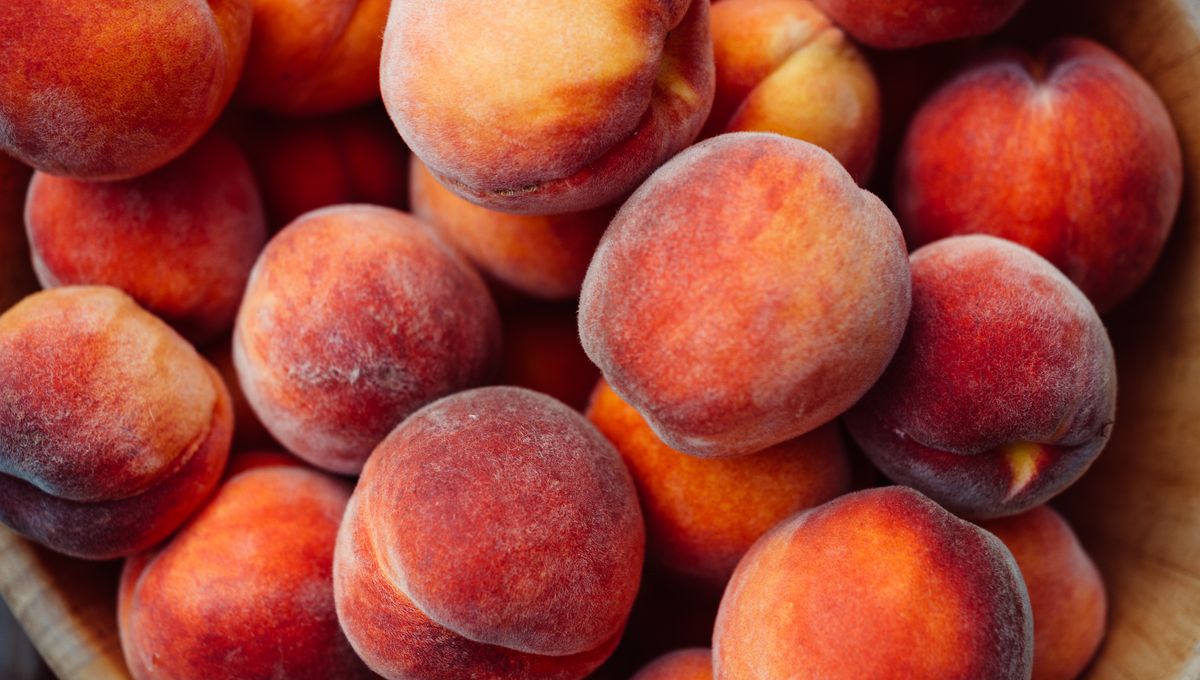
The unusual texture of peach skin is quite a complex defense mechanism that protects the fruit from burrowing insects and prevents mold from growing on the fruit’s surface. While peach hair, technically called trichomes, might benefit the plant, eating it is not always peaches and cream for everyone.
While the idea that peach skin is toxic is categorically not true, their pit or stone does contain amygdalin: a compound that breaks down into hydrogen cyanide. All from the family Rosaceae, cherries and plums also contain these toxic stones.
Although the stone doesn’t affect the toxicity of the rest of the fruit, there are still some reasons to be wary of peaches’ fuzzy outfits in specific circumstances.
To the question “can you eat peach skin?”, the answer is yes. It’s edible, nontoxic, and packed full of much of the fruit’s nutrients. The majority of the fruit’s fiber is found in the skin, as are antioxidant compounds. Compounds found in peach skin have also been found to significantly protect against oxidative damage in the kidneys, liver, and brain in rats.
There are some people, however, who may benefit from avoiding peach skin. People with an intolerance to the component rPru p 3 can experience allergic reactions from peach skin specifically, whereas the fruit inside is more likely to be tolerated.
Similarly, high-fructose fruits like peaches have been found to exacerbate symptoms in those with irritable bowel syndrome (IBS), particularly when the skin is left on the fruit.
Another concern surrounding the consumption of any fruit or vegetable skin is pesticide levels. A study conducted by the University of California Department of Food Science and Technology found that domestic fruits and vegetables were significantly higher in 11 of the 15 pesticides detected when compared to imported produce.
Considering cultivation methods can indicate a product’s potential exposure to pesticides, but while pesticide traces do not always equal unsafe food, thoroughly washing your fruit and veg, and where possible opting for organic produce, will hopefully quell any fears around pesticides.
So, despite the small risks associated with eating peach skin, in the end, you’re better off saving all that time and nutritional content in exchange for eating just a little bit of fuzz.
The content of this article is not intended to be a substitute for professional medical advice, diagnosis, or treatment. Always seek the advice of qualified health providers with questions you may have regarding medical conditions.
All “explainer” articles are confirmed by fact checkers to be correct at time of publishing. Text, images, and links may be edited, removed, or added to at a later date to keep information current.
Source Link: Should You Be Eating Peach Fuzz?